Efforts to cut emissions
in the race against climate change
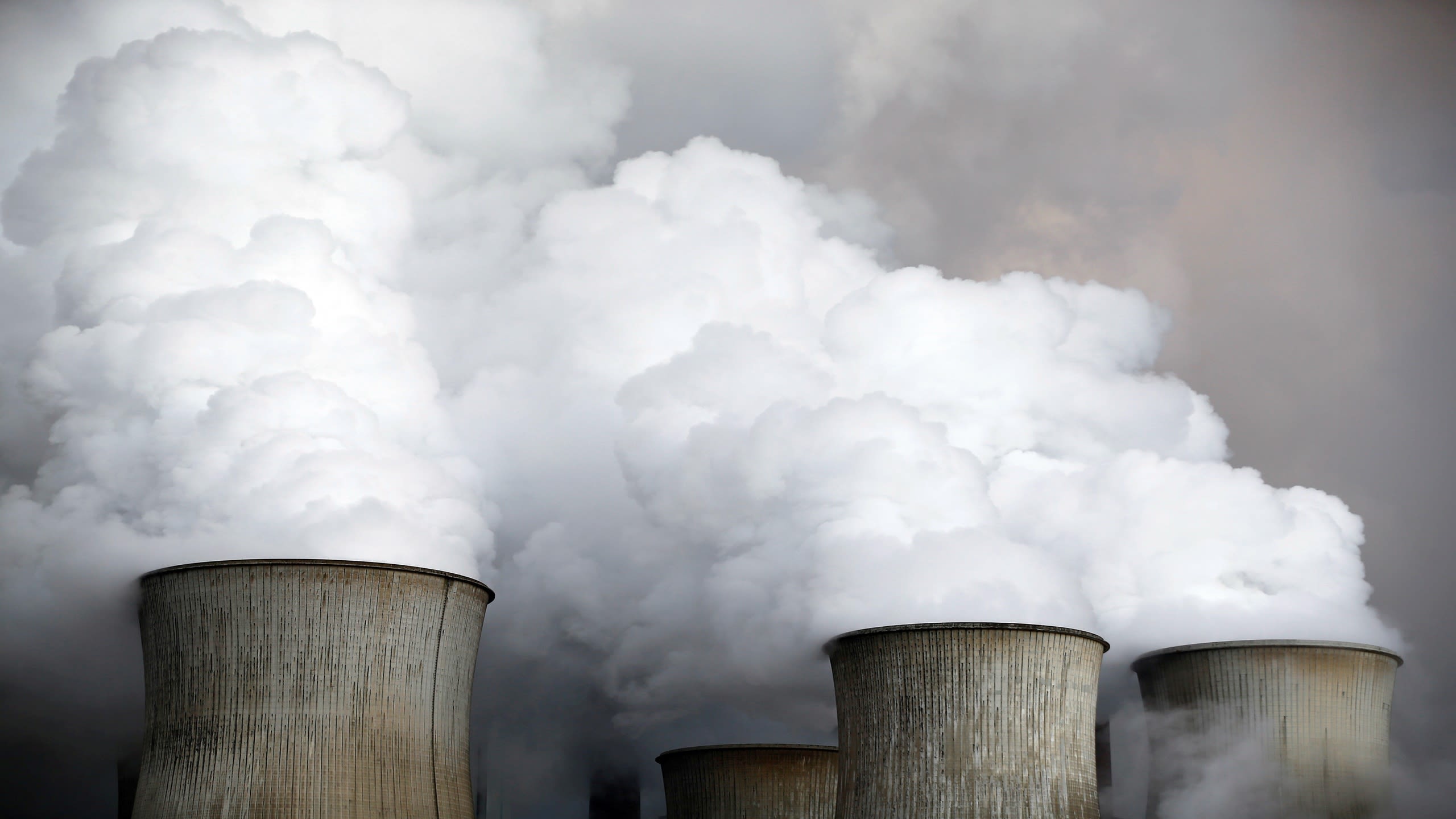
NDO - A host of countries have made commitments to significantly reduce carbon emissions towards the net zero target in the coming years. Net zero is frequently cited as an important measure in fighting against climate change and its devastating effects.
According to the UN, net zero means cutting emissions to near zero as much as possible, for example, by shifting to a green economy and clean renewable energy. In addition, all the remaining emissions must be absorbed by healthy forests and oceans.
If the world continues to pump out the emissions that cause climate change, global temperatures will rise beyond 1.5C above pre-industrial era levels that threaten the lives and livelihoods of people everywhere. As such, a growing number of countries are making commitments to achieve carbon net zero emissions within the next few decades.
To date, Bhutan and Suriname are the only two countries in the world to have reached net zero emissions. Along with companies, cities and financial institutions around the world, more than 130 countries have set or are considering the goal of bringing net emissions to zero by the mid-21st century.
Among the parties to the Paris Agreement on climate change, more than 140 have presented their new or updated Nationally Determined Contributions (NDCs) as required by the agreement.
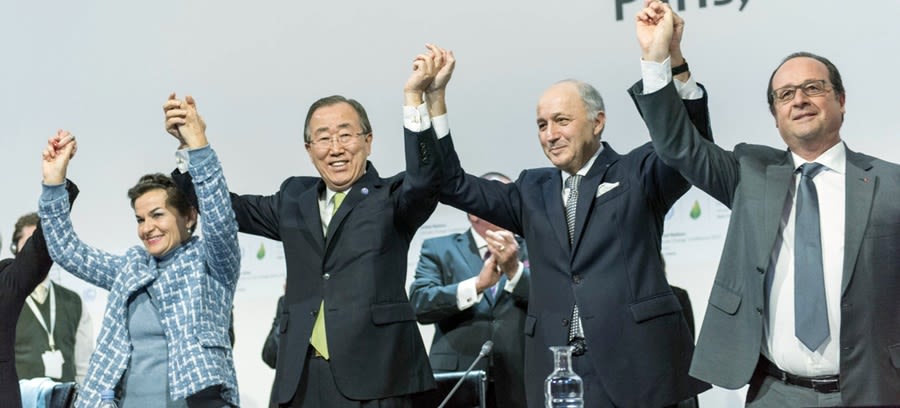
World leaders after the adoption of the Paris Agreement at COP21. (Photo: UN)
World leaders after the adoption of the Paris Agreement at COP21. (Photo: UN)
The European Union and 191 countries have joined the Paris Agreement on climate change. Having come into effect on November 4, 2016, the agreement pursues the goal of limiting global temperature increase at under 2C, and ideally even 1.5C, above the pre-industrial era levels.
Long-term goals
According to the World Resources Institute, about 19 countries, including the UK, the US, Canada, Germany and Japan, have announced their long-term plans to cut carbon emissions in their economies.
Since running for the White House in 2020, US President Joe Biden has announced addressing the climate crisis as one of his top priorities, only behind dealing with the COVID-19 pandemic.
Hours after taking office in January 2021, President Biden signed an executive order to have the US re-join the Paris agreement and set out a roadmap for addressing the climate issue both at home and abroad, aiming to reach net zero emissions by 2050.
At the Leaders Summit on Climate held virtually by the US last April, Biden affirmed that Washington is not waiting and the costs of delay are too great.
He emphasised the US resolve to deal with the climate crisis while calling on world leaders to accelerate the plan to reduce greenhouse gas emissions if they do not want to see a common failure of the world in preventing global warming.Biden also made a commitment to reduce US greenhouse gas emissions by 50-52% compared to the 2005 levels, double the commitments made under the administration of former President Barrack Obama.
At the Major Economies Forum on Energy and Climate (MEF) held in September, the US President continued to urge world leaders to join the US and the EU to make pledges on reducing methane emissions to underscore the urgency of strengthening climate ambition ahead of COP 26.
Last July the EU announced one of the world’s most sweeping plans to reduce carbon emissions and restrict the use of fossil fuels, aiming to turn green goals into specific actions right in this decade. According to analysts, the 27-member bloc is looking to become a bright example in addressing the climate crisis among the major economies.
The European Commission outlines a detailed roadmap to help 27 member countries achieve the common goal of cutting net greenhouse gas emissions by 55% compared to the 1990 levels by 2030. It is a step towards the zero emissions goal by 2050.
The plan proposes a carbon tax on imports heavily reliant on emissions, banning cars using internal combustion engines by 2035, planting 3 billion green trees by 2030 as part of the efforts to eliminate 310 million tonnes of carbon from the atmosphere.
To allay the concerns of electric car owners, Brussels proposes that from now until 2025 each member country should install public charging stations no further than 60 kilometres from main roads.
In addition, adjustments to the EU Emissions Trading System, the largest carbon market in the world, will force manufacturing factories, power plants and airlines to pay more for emitting carbon dioxide.
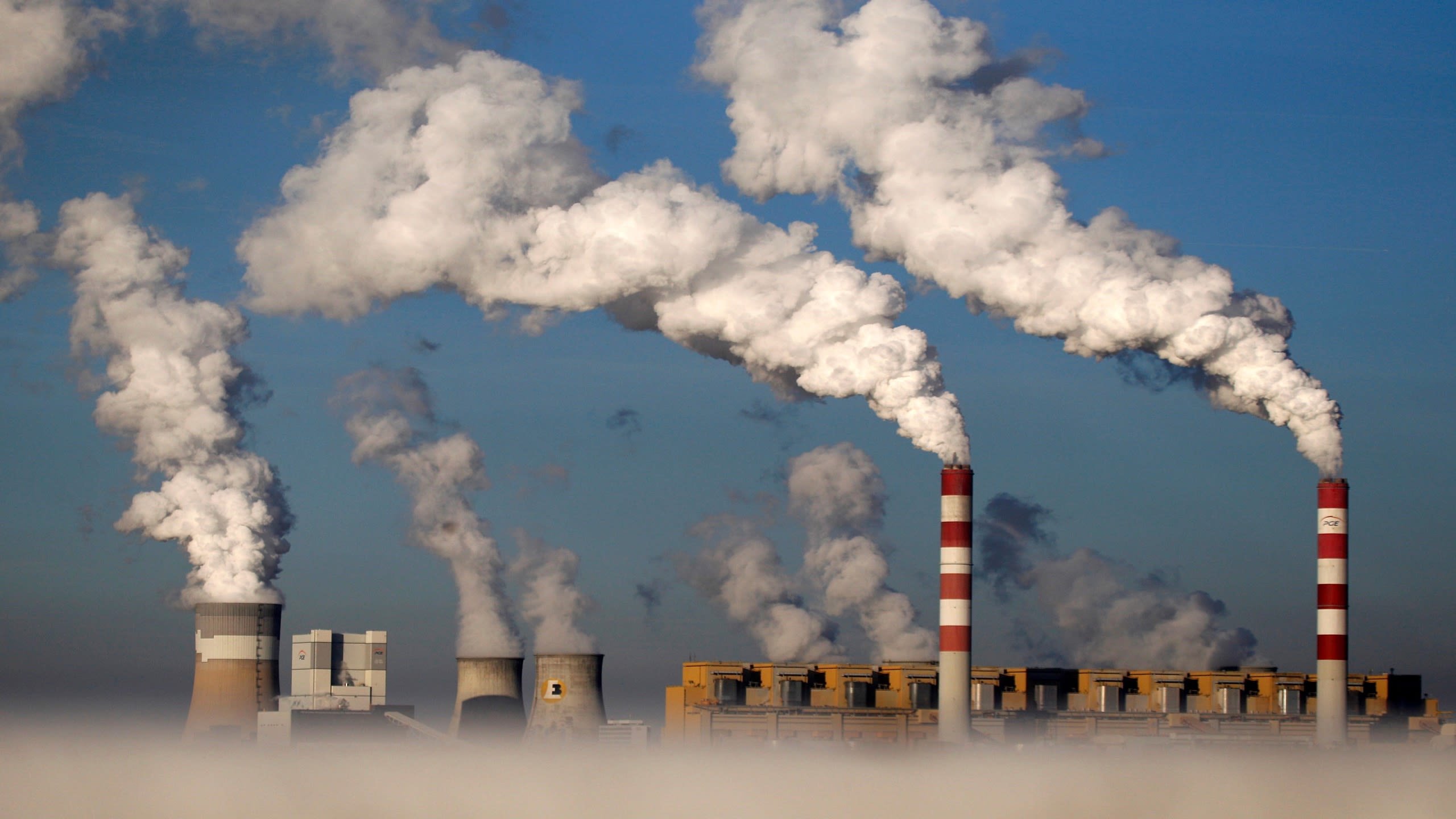
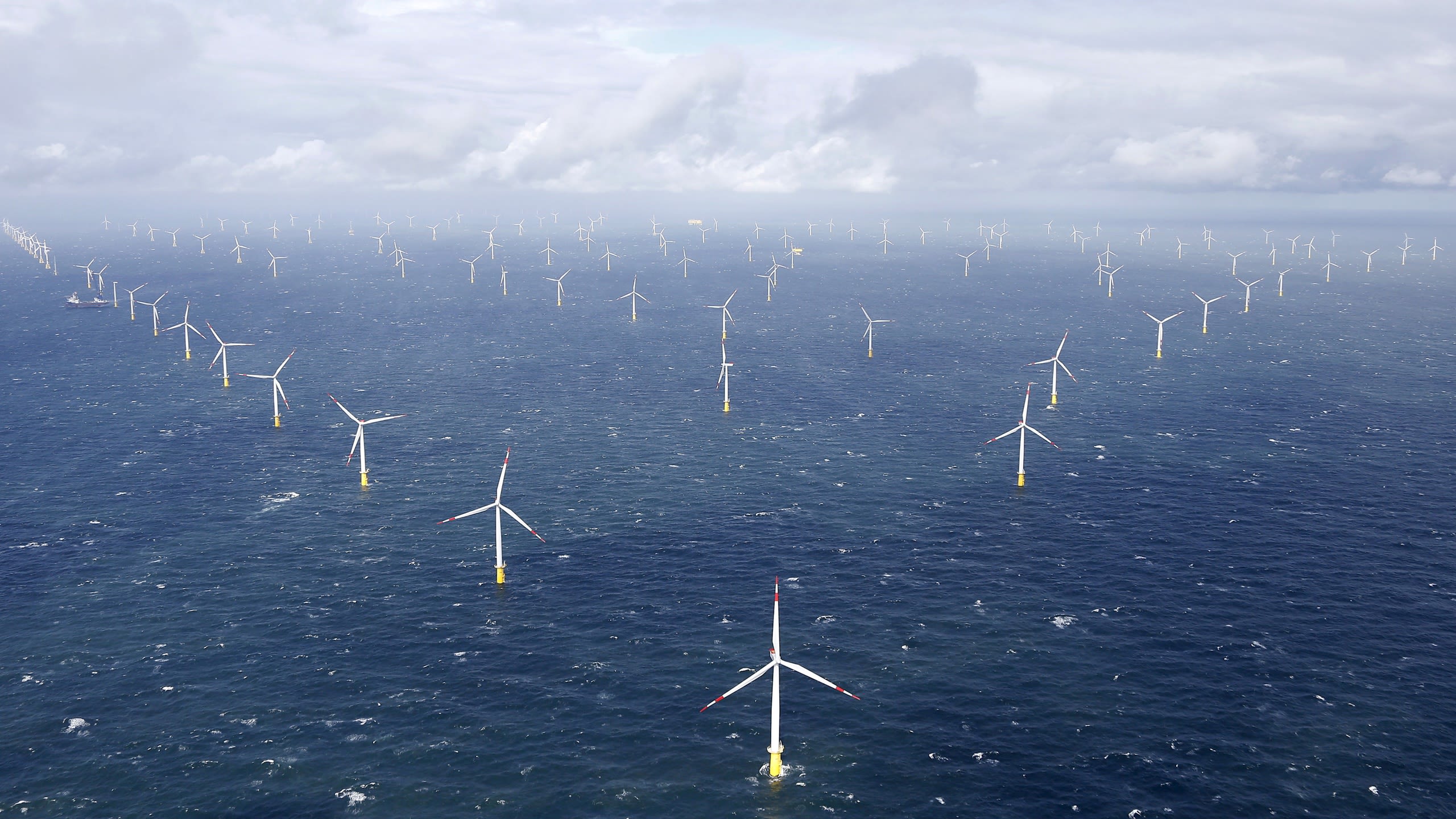
Commitments of COP26 host country
Two centuries ago, the UK was the leader in the first Industrial Revolution, which gave birth to many large cities in the country. Today, as the host of COP26, the UK pledges to take the world into a new revolution dubbed the Green Industrial Revolution.
Over the past 30 years, the UK has demonstrated that economic successes are always tied to environmental responsibilities. From 1990 to 2019, the UK has witnessed a record in clean growth. During the period, the economy expanded by 78% while emissions fell 44%, the fastest decrease among the G7 countries.
Since 2000, the UK has eliminated carbon from its economy faster than all other countries in the G20. The UK is also the first major economy to pass a net zero emissions law, aiming to bring all greenhouse gas emissions to net zero by 2050.
According to data by the UK Department for Business, Energy & Industrial Strategy and analysis of Carbon Brief - a website on climate change science and policy, the country is about halfway along the road to bringing net emissions to zero. The UK’s emissions in 2020 fell by 51% compared to the 1990 levels. (See details in the chart below)
As the world looks to recover from the impacts of the COVID-19 pandemic on lives, livelihoods and economies, the UK Government thinks it is a chance to build back better: to invest in making the "fog island nation" a global leader in green technologies. COP26 President Alok Sharma assessed that the UK is still leading on this path.
The UK is determined to turn risks into opportunities, creating hundreds of thousands of new jobs by investing in pioneering British industries while simultaneously protecting future generations from climate change and the remorseless destruction of habitats.
“We will turn the UK into the world’s number one centre for green technology and finance, laying the foundations for decades of economic growth by delivering net zero emissions in a way that creates jobs and allows us to carry on living our lives.".
The Ten Point Plan, announced by the UK Government by 2020, demonstrates the UK's significant and continuing commitment to tackling greenhouse gas emissions. The Ten Point Plan has laid the foundation for the Green Industrial Revolution pursued by London. This plan mobilises £12 billion, and potentially more than three times as much from the private sector, to create and support 250,000 "green jobs".
The rapid transition to zero-emission vehicles is considered the best demonstration of the UK's efforts to achieve multiple goals at once: creating jobs, strengthening industry, reducing emissions and facilitating commuting activities.
The UK will ban the sale of new conventional petrol and diesel cars and vans from 2030, 10 years earlier than previously planned. However, the country will allow the sale of new hybrid cars until 2035.
The UK is currently the world's leading manufacturer of electric vehicles. The UK-made Nissan LEAF was the third best-selling electric car in Europe in 2019. The UK has announced it will take advantage of this rare opportunity to build a world-leading electric vehicle supply chain in the country while improving the air quality of towns and cities.
The country has pledged to invest £1 billion in electric vehicle development and electric vehicle supply, including building "super factories" in the country to produce the necessary batteries on a large scale. Such a factory could employ about 2,000 highly skilled workers.
The UK will also spend £1.3 billion to accelerate the rollout of charge points for electric vehicles in homes, with 'ultra-fast' chargers in particular being more suitable for highways and main roads to address the concerns of long-distance drivers, and charging points near homes and workplaces to make the charging process more convenient than ever.
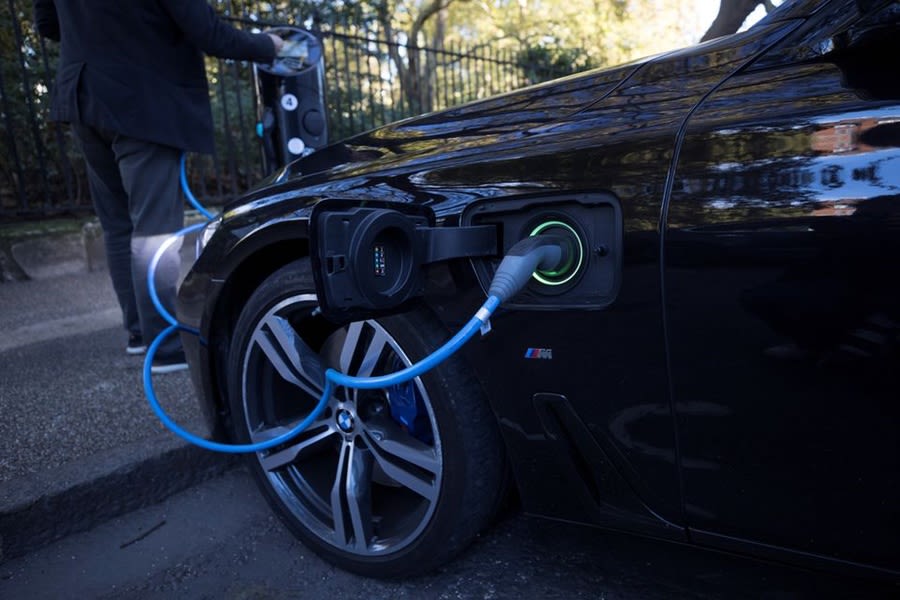
An electric vehicle charging point in London.
An electric vehicle charging point in London.
In order to achieve its goal of a green public transport system, the UK will soon transition to more sustainable vehicles through investments in rail and bus services and measures on supporting walking and cycling infrastructure. The country plans to pour capital into thousands of zero-emission buses and open lanes for cyclists in towns and cities. This not only improves air quality and reduces emissions, but also bringing benefits people's mental and physical health.
Assessing offshore wind as a critical source of renewable energy for the growing economy, the UK plans to quadruple offshore wind capacity in order to generate more power than used by all UK homes today. Currently, the UK already generates more electricity from offshore wind than any other country.
Ahead of COP26, Prime Minister Johnson on October 19 continued to concretise the above 10 goals in the Net Zero Emissions strategy: Build back greener. This strategy sets out a comprehensive economy - wide plan for how British businesses and consumers will be supported in making the transition to clean energy and green technology – lowering the UK’s reliance on fossil fuels by investing in sustainable clean energy in the UK, reducing the risk of high and volatile prices in the future, and strengthening national energy security.
Affirming that the UK will always be at the forefront of responding to climate change, Prime Minister Johnson also urged all countries to take urgent action at home and abroad to turn the tide on climate change and secure a brighter future for coming generations. In the context of natural disasters, extreme weather, pollution appearing with more frequency, COP26 preparing to take place in the UK will be a very important event. The world needs to take advantage of this opportunity to "recover cleaner, rebuild greener, and restore our planet.".
Published: 30/10/2021
Production manager: Truong Son
Translation: Hoa Bui, Thuy Linh
Design: Duong Anh Ngoc
Sources: Reuters, ukcop26.org, gov.uk, carbonbrief.org, un.org

